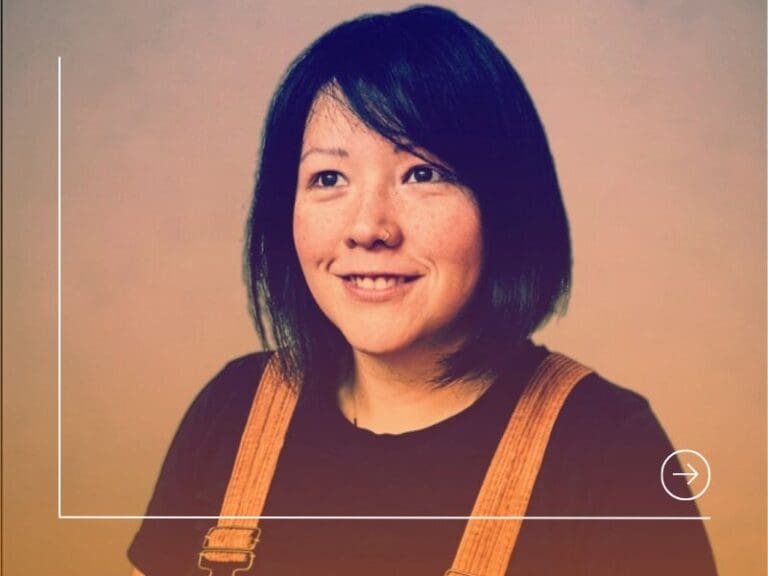Shirin Arnold is the Industry Solutions Lead for Construction at Dropbox.
Shirin joined Dropbox at the end of 2021 from Autodesk where she held several key positions in sales and product. She was a Technical Solutions Executive for the AEC industry as well as a Group Product Manager driving the BIM 360 Field Management solutions forward. Even though she holds a Master’s in Structural Engineering from Stanford University, she has always leaned towards the construction industry. Her interest in construction led her straight to a boots on the ground position with a major general contractor as a project engineer where her interest flourished. She has held various product management positions from Credit Suisse to Graphisoft where she has been able to continue to influence the construction industry.
How did you land your current role? Was it planned?
My father, an engineer, was a major inspiration for my career in the engineering industry. As a child, I travelled the world with him, visiting construction sites and seeing first-hand how they operated. These experiences sparked my early interest in the field. Later, while studying structural engineering at Stanford University, I gained deeper insights into the industry through its renowned construction management program. However, it wasn’t until I started working in structural engineering that I realised my true passion lay in construction, preferring the dynamic environment of being outdoors and on-site.
Growing up in the Bay Area of San Francisco, at the heart of Silicon Valley, I witnessed the region’s transformation as technology evolved. This exposure sparked my curiosity about technological advancements, and I was naturally drawn to the tech side of construction. I saw the potential to create a broader impact—not just on individual projects but by driving innovations that could transform the industry on a larger scale. For example, during my work in an innovation program, I was one of the first to adopt Building Information Modelling (BIM), a tool that has revolutionised how construction projects are planned and is now standard practice across the industry.
What are the key roles in your field of work, and why did you choose your current expertise?
After working in the construction industry, I joined Dropbox to help the sales and tech teams better understand the unique needs of construction businesses. As construction was and still is a very traditional industry, I was drawn to the opportunity to explore how Dropbox could support its journey toward digital maturity and transformation.
In my current role, I work cross-functionally across departments—from product development to sales—leveraging my communication skills to effectively convey the value of projects to diverse stakeholders. By drawing on my industry expertise, I help partners and sales teams understand the challenges construction businesses face, demonstrate how Dropbox provides tailored solutions, and guide strategic development. I also equip teams to speak the industry’s language, ensuring we align with customer needs.
My primary goal is to expand Dropbox’s presence in the construction sector and help more businesses adopt the right tools to achieve their best work.
Did you (or do you) have a role model in tech or business in general?
Growing up in Silicon Valley’s Bay Area, I was constantly inspired by the tech industry. I was also fortunate to have a father with an incredible work ethic who, most importantly, always believed in me. Thanks to him, I developed the confidence and grit that have shaped my journey. He taught me that I could achieve anything I set my mind to, without limits.
When my father came to the US when I was six, he started his own business. So from a young age, I supported him and witnessed his unwavering determination to succeed. His example has been a lasting source of inspiration.
In addition to my father, I’ve been fortunate to have had amazing managers throughout my career who have served as role models. I believe it’s crucial to work for someone you admire and can learn from. To this day, I stay in touch with my former managers, often turning to them as trusted career coaches during pivotal moments.
What are you most proud of in your career, so far?
I’m proud of the path I’ve taken to get where I am today—and I’m grateful for having followed my passion, even though it meant taking a less traditional route. It’s crucial to be passionate about what you do and enjoy your work, especially given how much time we spend on it. For example, I started out as a structural engineer and quickly realised I needed to be in the field to align with my personality. This desire to make a broader impact on the industry led me to technology for the built world, which is why I’m so passionate about working at Dropbox. I believe the global impact we can have on the AEC industry is exponentially greater with solutions like Dropbox, which empower companies worldwide to embrace digital transformation—and I get to be part of that journey.
What does an average work day look like for you?
As an early riser, I value the quiet moments before the house awakens. I start my day with a latte, using the first hour to review emails and plan my schedule. This focused time helps me align priorities with upcoming meetings and tasks, setting the tone for a productive day.
My background as a structural engineer gave me a deep appreciation for structure and organisation, which influences everything I do. About 25% of my day involves engaging with customers and prospects, helping them understand how Dropbox can optimise their workflows. These interactions are both energising and insightful, offering valuable perspectives on user needs.
The rest of my day is dedicated to strategic planning and problem-solving, particularly around leveraging the power of AI to build innovative solutions for our customers. I collaborate with external technology partners to integrate solutions that expand Dropbox’s ecosystem, including exploring AI-powered tools and services. I also work closely with internal product teams to drive innovation and explore how technologies like AI can improve efficiency, automate tasks, and ultimately create even greater value for our customers. I’m always looking ahead, asking: What challenges remain? How can we improve workflows and create even greater value for our customers?
Each day blends reflection, collaboration, and action, with the ultimate goal of delivering impactful solutions and empowering our customers to achieve more.
Are there any specific skills or traits that you notice companies look for when you’re searching for roles in your field?
Technology is a vast, multi-disciplinary field that spans countless industries, offering diverse paths to building a successful career. Each industry demands specific skills—for example, in construction and engineering, strong problem-solving abilities are crucial for delivering real-time solutions, while effective communication is key for collaborating with stakeholders and managing complex projects.
In construction, attention to detail is paramount, and companies value individuals who are passionate about delivering their best work. The roles women should pursue in tech ultimately depend on their unique passions and strengths, which often emerge through exploring various fields and discovering what resonates most.
A particularly encouraging trend is the growing presence of women across the industry—not only in leadership roles like project management but also in trades such as carpentry and ironwork. There are no roles in tech or construction that women cannot excel in. Historically, barriers have stemmed more from outdated misconceptions than from capability, but these are steadily being dismantled.
Has anyone ever tried to stop you from learning and developing in your professional life, or have you found the tech sector supportive?
While I haven’t faced direct resistance in my professional development, that doesn’t mean it’s been without challenges. Early in my career, there were very few women in the sector, and I had to learn how to speak up and make my voice heard. Over time, I’ve seen more women entering the industry, and I’ve found strength in communities like Women in Tech, Women in Product, and Women in Construction. These groups have been invaluable in helping us amplify our voices and champion one another.
That said, I’ve come to realise that some of the biggest hurdles weren’t external—they were internal. I often focused so much on delivering results and proving my impact, both to myself and others, that I didn’t prioritise personal growth. One pivotal moment came when I skipped an exclusive leadership development offsite to work on a team roadmap instead. It was a wake-up call: I realised that investing in my own growth not only benefits me but also makes me a stronger leader and sets a positive example for others.
While the tech sector has been supportive in many ways, I’ve learned that advocating for my own personal development is just as vital as advocating for others.
Have you ever faced insecurities and anxieties during your career, and how did you overcome them?
I tend to be my own toughest critic, and I can often put myself under immense pressure. But over time, I’ve come to understand that it’s okay not to have all the answers. This realisation has helped me lean on those around me and embrace true collaboration. By opening up and trusting my team, I’ve found greater peace of mind, letting go of the insecurities and anxieties that once held me back.
Entering the world of work can be daunting. Do you have any words of advice for anyone feeling overwhelmed?
Entering the professional world can feel overwhelming, and I’ve certainly experienced that myself. It’s important to remember that these feelings are common, and almost everyone faces them at some point in their careers. Recognising this can make the experience feel more human and less isolating, helping to ease the sense of being overwhelmed.
For me, stepping back to consider the bigger picture has always been grounding. I remind myself how grateful I am for the opportunities in front of me, and that I’ve been given these chances for a reason. This perspective helps maintain my confidence and keeps me moving forward, even during uncertain times.
Another key realisation is that there’s no single “right” path or answer. Everyone’s journey is unique, and that’s something to embrace. It’s okay to take steps, explore, and sometimes even pivot when you discover something isn’t for you. These moments of recalibration are just as valuable as the forward strides because they help you learn more about yourself.
Ultimately, every decision or step in your career contributes to a larger journey of discovering what excites and motivates you. When you view it this way, every experience—whether it feels like progress or not—becomes part of your growth, making the whole process feel a little less daunting.
What advice would you give other women wanting to reach their career goals in technology?
Don’t give up. As women, we’re already making—and will continue to make—a significant impact on this sector. Find a local or virtual community of women in tech, women who code, or similar groups for support and connection on your journey. Mentorship is also key. Interestingly, many of my mentors have been men, and many are strong advocates for women in tech. They’ve played a crucial role in helping me navigate my path. Choose a mentor who inspires and challenges you. And never hesitate to speak up—you deserve a seat at the table.
What can be done to encourage more girls and young women into careers in engineering and STEM?
Leaders and institutions could greatly improve interest in technology and engineering careers, by educating young people on how important engineering is to our planet. It’s behind the infrastructure that we commute on daily, the homes that we live in, the means by which we get water and are able to travel.
We also need more female leaders across the industry to take an active role in encouraging young women into the sector. Whether it’s offering to speak at early career days, or post-graduate events, the more young girls see women leading within the field, the more we can inspire them to follow suit.
Post Views: 1,130








